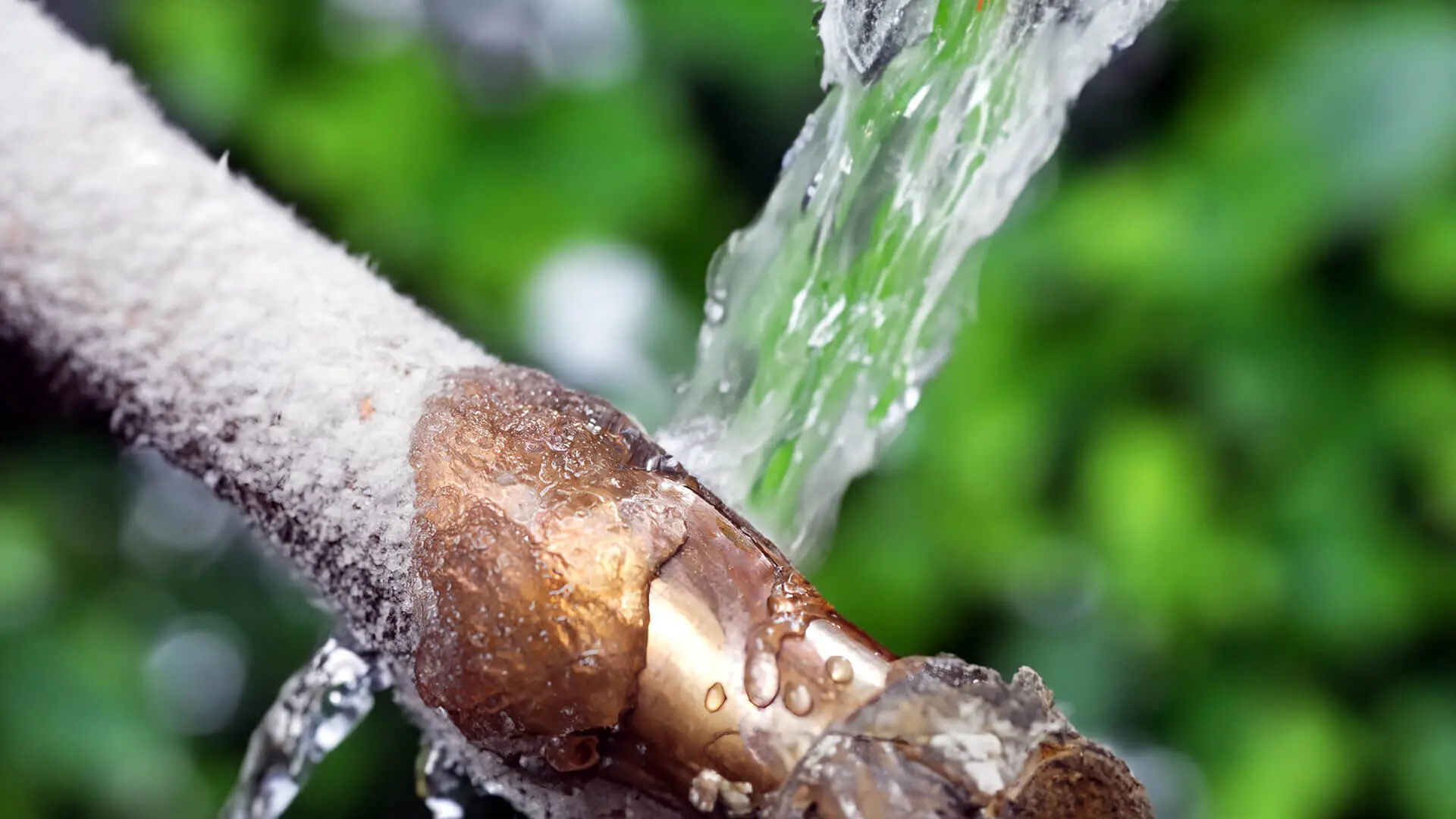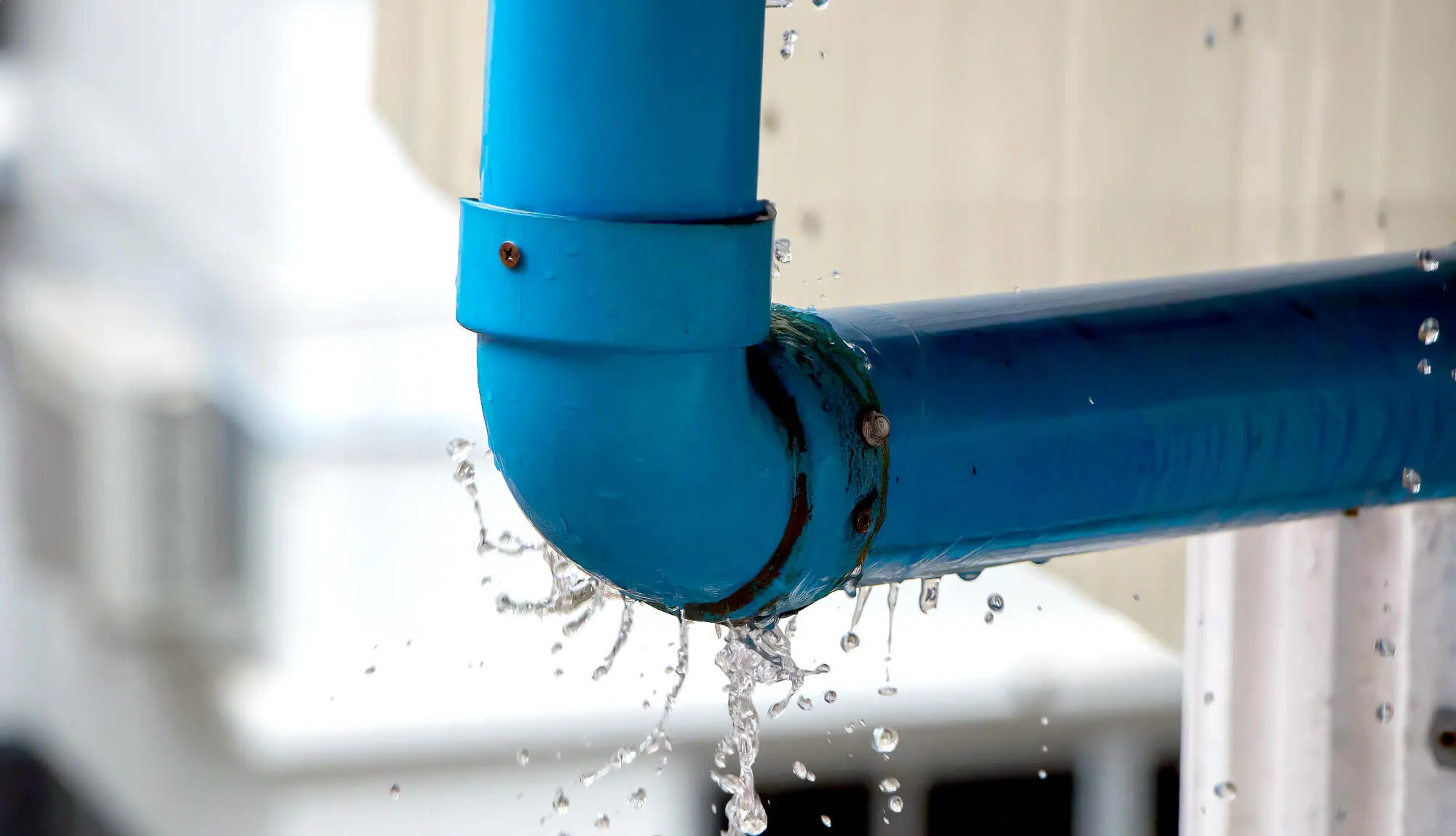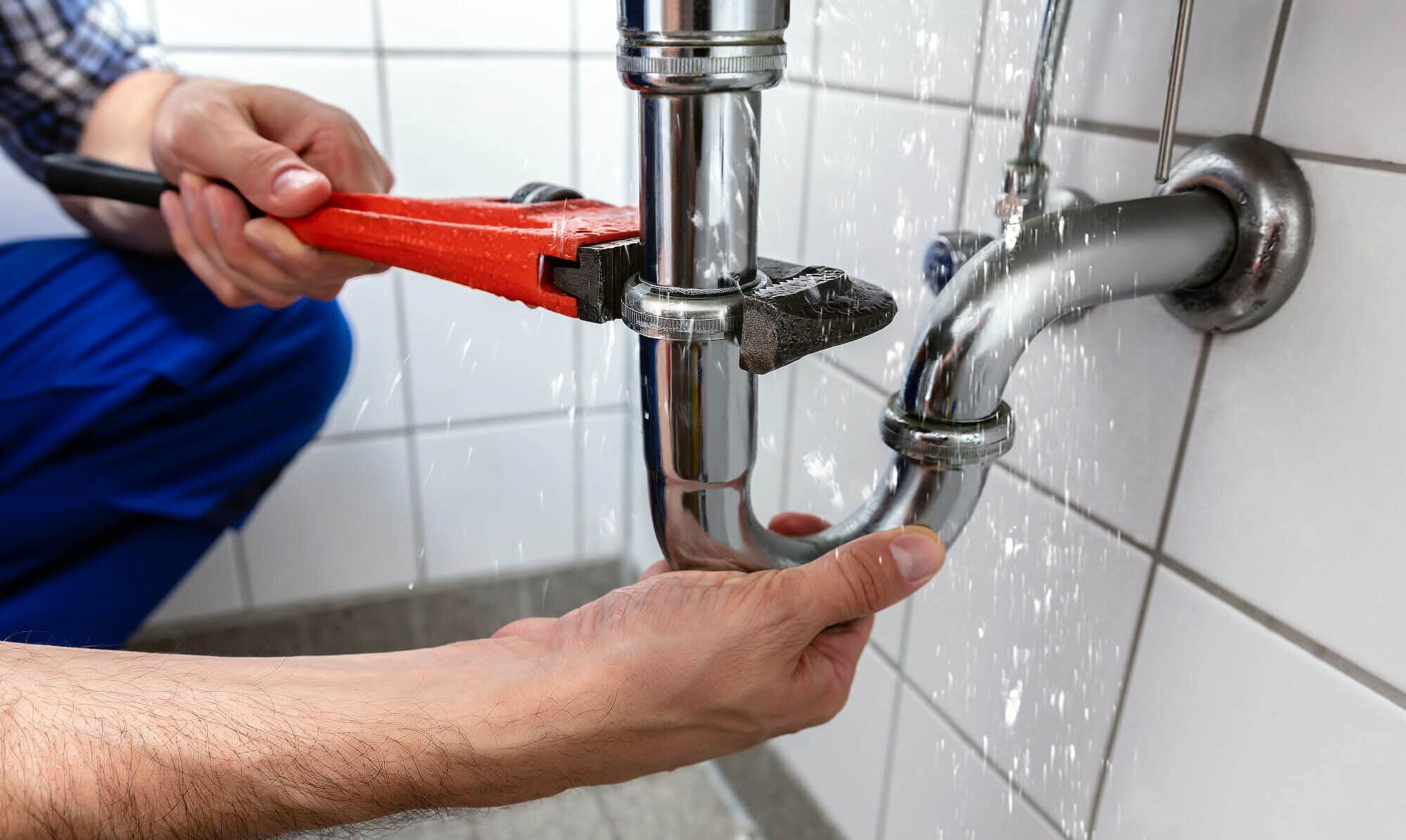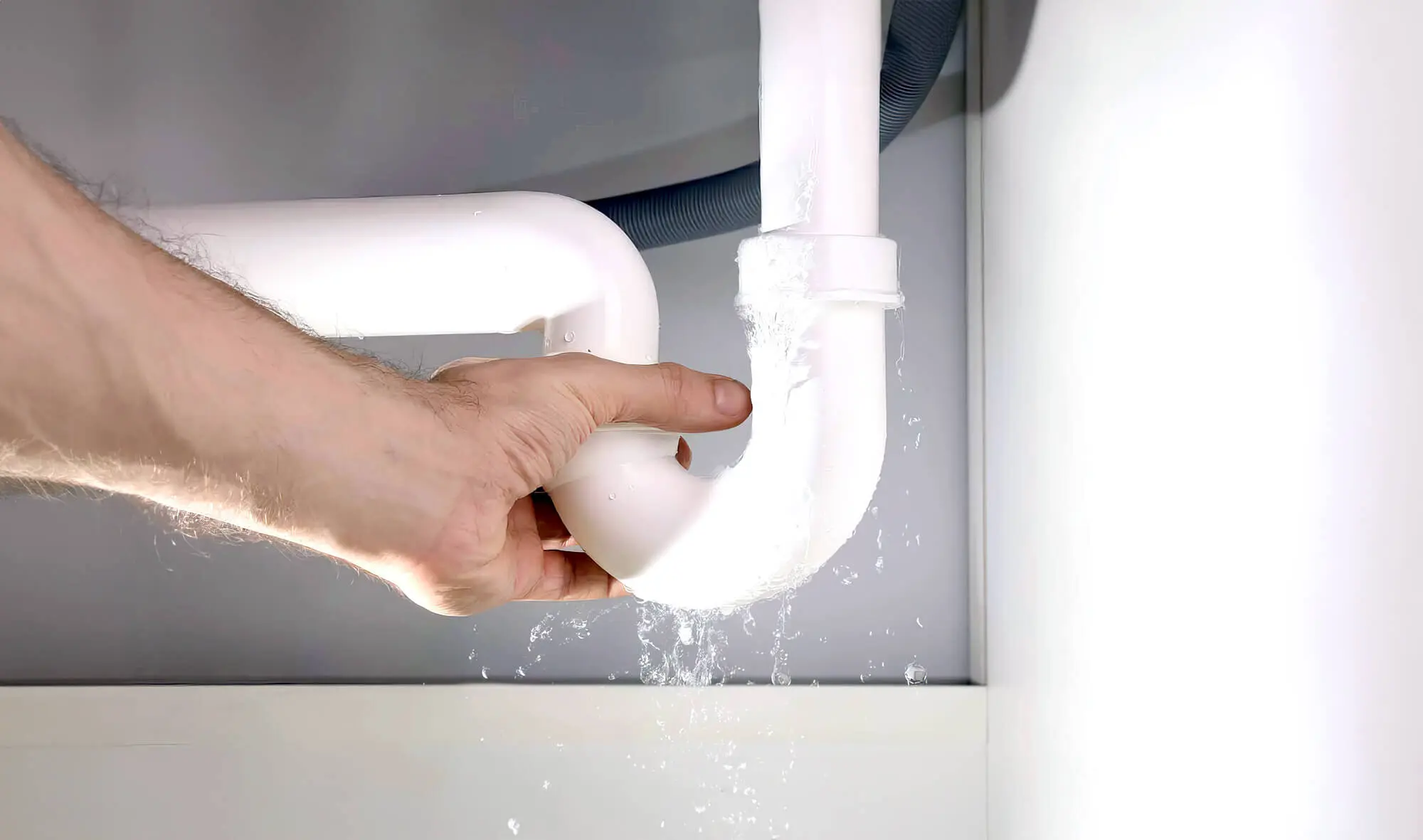Your home’s plumbing pipes are crucial for water circulation, yet they often go unnoticed until they burst.
These pipes run through your whole property, incurring enough wear and tear until the water pressure builds up significantly, causing the pipes to burst. Such plumbing issues are common in Australia and are usually caused by wear and tear, misuse, hard water, freezing, clogs, etc.

And even though various reasons can lead to burst water pipes, they’re comparatively easier to handle when you’ve figured out what went wrong. Additionally, you can prevent such plumbing emergencies by following certain precautions to protect the pipework from the inside.
Let’s look at the causes of burst pipes and some preventative tips!
Common Causes of Burst Pipes
1. Freezing Temperatures
Many think frozen pipes only happen in icy weather, but they can occur in tropical areas too. It happens when water in the pipes hits freezing temperatures.
The water starts freezing in one area, and the pressure continues to build until the joints are affected - but diagnosing a frozen pipe early is quite tricky. Sprinkler pipes, unheated attics and crawl spaces, and pipes running parallel to poorly insulated walls will likely face this issue.
2. Corrosion and Rust
Since plumbing pipes are constantly exposed to sunlight and dust, they will likely rust over time. Moreover, metal pipes can develop rust on their surface, weakening the joints, pipe seals, and even walls. This rust gradually corrodes the pipes, forming cracks that eventually rupture due to the water pressure.
Look for warping and discolouration on the pipes and rusty-coloured water coming out of your faucets - these are foolproof signs of corrosion. If you notice these signs, immediately call your local plumber to solve this issue.

3. High Water Pressure
Water pipes have their limits when it comes to pressure. If it’s too high, you might find leaks and even overflowing wastewater. Luckily, you can easily check this at home.
Go to a local hardware store and purchase a hose bib gauge that can be easily attached to an external spigot to open the pipeline. This will help you measure the water pressure - a regular reading would range from 50 to 80 PSI (pounds per square inch). If you find that the water pressure is measuring too high, call a plumber.
4. Clogs and Blockages
Clogs or blockages inside the pipe can cause excess water pressure, backing the water into your drains and sinks. Even minimal clogs can gradually increase in size and significantly disrupt the water flow, leading to pipe cracking and bursting.
If you can’t resolve a clog with standard household tools, call a plumber to have it checked. You can also install mesh drain covers in your shower, sink, and tub to prevent clogs from forming altogether.
5. Old Age, Wear and Tear
As discussed above, constant exposure to dirt, debris, and sunlight can lead to wear and tear, causing the pipes to warp and the joints to loosen. Moreover, external deterrents like invasive tree roots can significantly damage your pipes. Poor installation can also contribute to pipe bursts.
That’s why plumbers recommend replacing your water pipes every five to ten years to prevent the corrosion from advancing too much.
How To Prevent Burst Pipes
As always, following some preventative measures and tips can save you a lot of money and pain in the long term. They help you avoid burst pipes and other related plumbing agencies, thereby lengthening the longevity of the same:
1. Insulation
Ensure outdoor piping and taps, including overflow and drain pipes for heating, are well-insulated. Check whether any joint, tap, or bend is exposed—if there’s any, immediately insulate it. Typically, plumbers use insulating foam or lagging to cover the entire pipework.
2. Lagging
Pipes in the ground and unheated areas, such as basements, garages, attics, etc., must be covered with lagging.

3. Keep Water Pressure In Check
If you have difficulty manually checking the water pressure every time the pipes start acting up, install pressure-reducing valves inside the pipework. These help maintain optimal water pressure within the pipes, thus drastically reducing the chances of them bursting.
4. Regular Inspections
Like most plumbing components, scheduling frequent inspections for your pipelines will identify cracks and breakage earlier, giving you enough time to resolve them.
5. Best Practices
- Set your central heating at least 12 degrees Celsius or 54 degrees Fahrenheit during winter so the pipes aren’t cold enough to freeze the water.
- If you’re leaving your home for a few days, turn off the stopcock, drain all the water from the system, and keep the heating on.
What to Do if You Have a Burst Pipe
Despite following best practices and preventative measures, sometimes you’ll have to deal with burst pipes. And what you do in this situation is essential — limit it to a minor inconvenience or escalate it to a plumbing emergency.
Moreover, not addressing burst pipes properly can severely damage your home’s insulation, electricity, and water supply. In addition to spending a lot of money to fix severe burst pipes and damaged walls, there is a high chance of an electrical fire.
Step 1
Look for the signs - damp patches on ceilings, walls, or floors, low water pressure, unusual noises, and even electrical faults. The signs are often more subtle than a torrent of water flowing out of the pipes.
Step 2
Turn off the stopcock and isolate the affected area from the water. Turn on all of the taps to remove water from the supply system.

Step 3
Remove all your belongings from the damp area and avoid touching any electrical devices, especially light switches, as there is a high chance that water has entered the circuits.
Step 4
Don’t try resolving a burst pipe independently. This can be wrong, mainly because it affects the electrical system. Immediately call a professional when you see signs of water leaking from the pipes.
Pipe Burst Prevention
Even though they’re standard, burst pipes can be a real nuisance and cause significant property damage when unresolved. In addition, they aren’t as easy to fix as leaking faucets or blocked drains and require professional aid.
However, conducting regular pipe inspections and following some preventative measures can greatly increase the lifespan of pipes.
Big Blue Plumbing offers full-service solutions with high-quality materials and excellent workmanship throughout the Sunshine Coast, Noosa, and Moreton Bay regions. In addition to your typical plumbing emergencies, we provide industrial and real estate services, including drainage, hot water systems, gas, and roof and gutter repairs.



